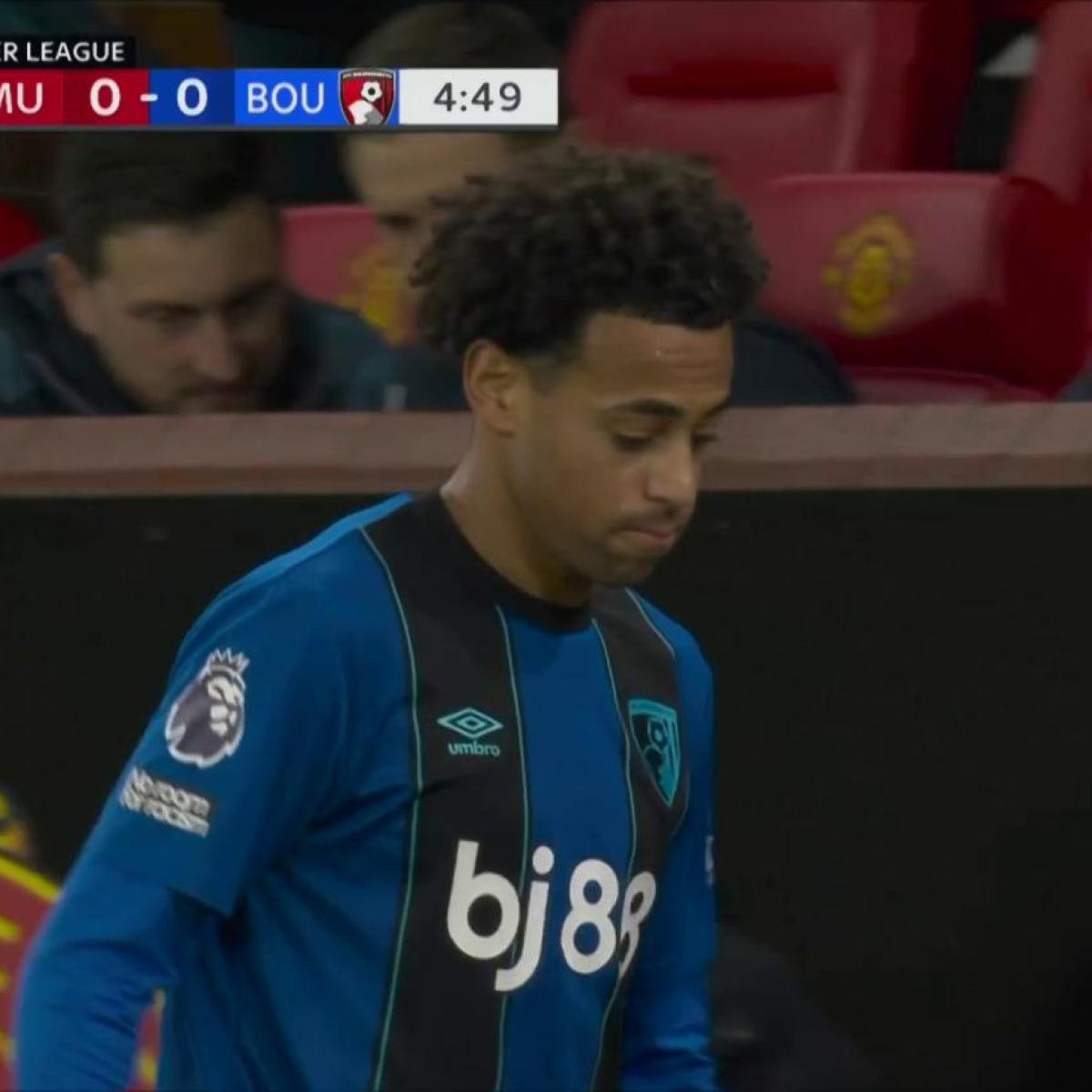Less than a week after Sporting KC beat the New York Red Bulls to win the 2017 Lamar Hunt U.S. Open Cup in September, qualifying for the 2018 tournament began. More than 100 amateur clubs entered the competition, dreaming of a chance to compete in the 105-year-old event against the best professional teams in the country.
Of those scores of squads, 14 Open Division Local Qualifying teams emerged, 14 flag bearers for an ever-growing stanchion of U.S. soccer.
For one such club, FC Denver, it was the culmination of more than a decade of determination. For a group founded in 2006 that has won everything available to it at the local level, reaching the first round of the U.S. Open Cup became a program-defining accomplishment.
“We could win leagues and state cups and all different sorts of tournaments and challenges, but none of them match what qualifying for U.S. Open Cup is,” FC Denver director Eric Fulton said. “It’s the pinnacle of competition for amateur teams.”
FC Denver is by no means unique in the U.S. soccer landscape, in its goals and ambitions, status and stature, organization and structure. FC Denver is in many ways a prime example of both where soccer has come from and where the sport is going in America.
Humble Beginnings
Fulton founded FC Denver in 2006, seeking a way to stay engaged with the sport he grew up playing in an organized, meaningful and passionate way. At the time Fulton wanted to create a club the city of Denver could be proud of and give players an avenue to continue their careers.
“From those humble beginnings we’ve grown into one of the top soccer clubs in the state,” Fulton said.
Initially, the club spent a few years getting organized, growing and recruiting. FC Denver started out in the Colorado Amateur Soccer League, working its way up to the top ranks and learning what it takes to compete at the top division of amateur soccer in the state.
After three or four years, FC Denver was one of the best clubs — if not the best — in Colorado.
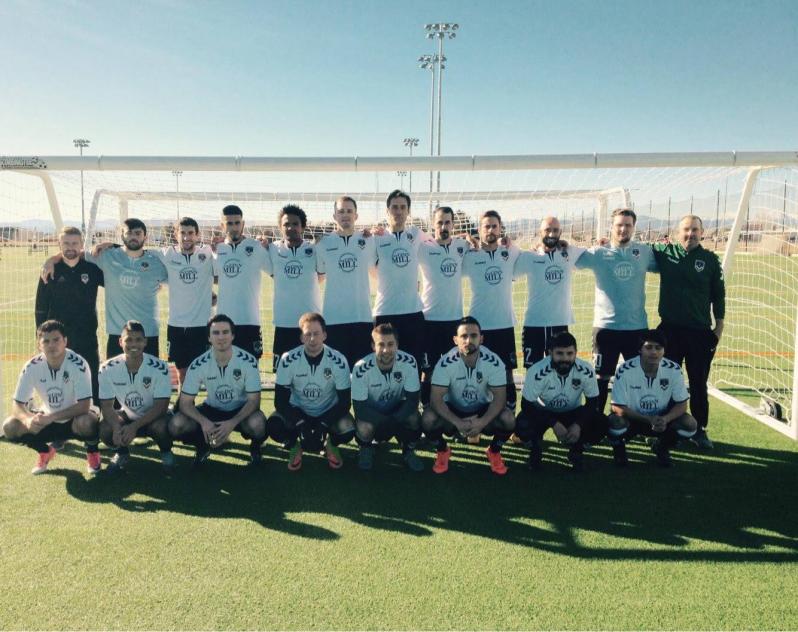
FC Denver, U.S. Open Cup amateurs. Photo: FC Denver | Facebook
“For a period of a couple years we were undoubtedly the best soccer club in the state, winning all the league championships,” Fulton said.
But FC Denver hadn’t accomplished the one thing every amateur club wants to do: qualify for the U.S. Open Cup. The organization sat out the first year it was eligible, unsure of the costs it would incur. After seeing its biggest rival — Harpos FC — make a name for itself by qualifying that year, FC Denver couldn’t help but enter the following year.
However, the team lost its first match of U.S. Open Cup 2017 qualifying to league foe Azteca Denver FC. The dream of qualifying for the tournament would have to wait another year.
Growing Competition
Over the last couple of years, amateur soccer competition in the Centennial State has grown exponentially. FC Denver no longer has hegemony in the Colorado soccer scene, with clubs like Azteca and Harpos growing in stature. Rivals are increasing in quality and quantity.
When FC Denver began, the Colorado Amateur Soccer League — now the Colorado Premier League — was the only game in town. Now it competes with (and against) the Colorado Division of the United Premier Soccer League, which has spread like wildfire all across the country but in Colorado in particular, with 16 teams across three divisions.
Only California had more amateur clubs register for the U.S. Open Cup than Colorado. The Colorado Division of the UPSL, while technically above the CPL on the convoluted U.S. Soccer ladder, is currently a notch below the CPL in terms of talent, though the top clubs in both leagues provide strong challenges for one another.
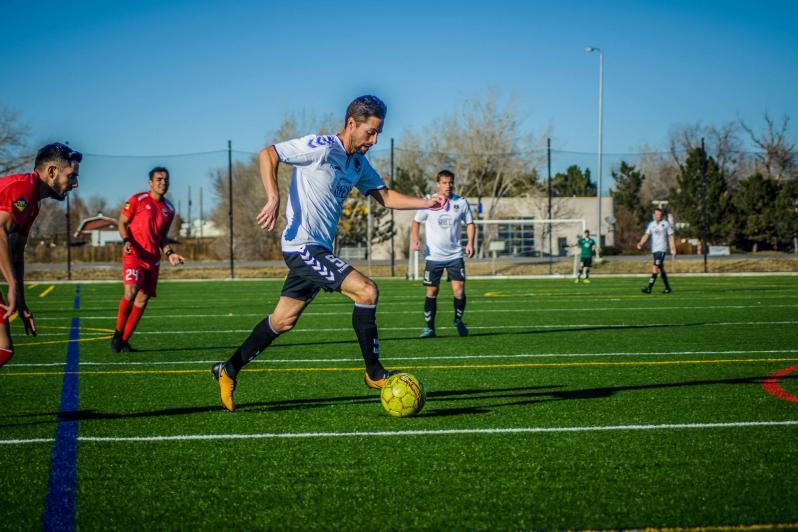
FC Denver's Chris Clopper. Photo: FC Denver | Facebook
Fulton said the increased competition is a net positive because it gives local players more options, even if it means his club has to up its game.
“It puts more pressure on us and other teams because there’s more competition amongst teams than there were with similar resources before,” Fulton said. “There’s more money being required than there was even a couple years ago because of this increased competition to have the practice facilities and to play in the leagues.”
Money is a key facet, even at the amateur level.
For The Love Of The Game
Amateur soccer is growing in Colorado — and around the country — not because everyone is looking for a way to make their dreams of being a professional come true (though that exists), but because of the legions who don’t want to give up on playing the game they love.
Unlike American football, baseball and hockey, which require restricting sets of equipment and players, soccer is an incredibly easy sport to play. You need a field and a ball. Only basketball can compare with accessibility for recreational and amateur athletes. But that doesn’t mean it’s easy.
FC Denver, like scores of other amateur clubs around the country, is almost entirely self-funded and is not in the game to make a profit. The players pay for about 70 percent of the club’s costs, with the remainder coming from sponsorships.
FC Denver players and staff, Fulton said, are guided by the club’s ethos of commitment, respect and communication to advance the game they love.
“It requires a lot of time and no one gets paid,” Fulton said. “I haven’t done this for money.
“It’s all volunteer, finding time outside our day jobs and families to make this happen. Makes it a sweeter story for us and the amateur teams in this country that qualify.”
Qualification
FC Denver did qualify for the U.S. Open Cup, barely. One of 14 U.S. Open Cup amateurs to reach the first round of the tournament, FC Denver had to fight through three grueling qualifiers against some of the best amateur teams in the state, defeating three UPSL teams from Colorado.
In the first round of qualifying for U.S. Open Cup amateurs, FC Denver faced Gam United FC, of the UPSL second division. A 3-0 victory saw the club move on to face Fort Collins United, of the UPSL first division. The second-round matchup was tighter, but FC Denver ultimately prevailed 1-0.
The final was against Indios Denver FC, a fellow Denver club and one of the best in UPSL. The match had all the makings of a classic final, which was decided in extra time.
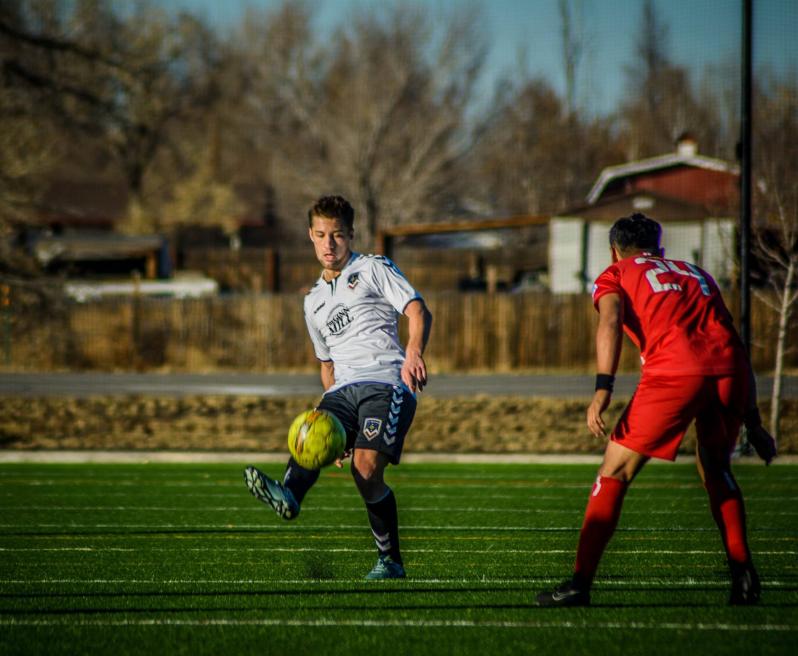
FC Denver's Peter Jacobson vs. Indios. Photo: FC Denver | Facebook
Two key moments marked first 90 minutes. FC Denver had the lion’s share of the chances for the first 70 minutes until captain Drew Melin suffered a concussion and shortly after Peter Jacobson pulled a hamstring but had to play on because FCD had used all of its substitutions.
“At that point it seemed like the wind in our sails died down,” Fulton said.
Indios worked its way back into the match, putting pressure on Denver until former FCD player, Maurice Diawara, now playing midfield for Indios, picked up his second yellow of the match in the 89th minute.
With the man advantage (or half-man, given Jacobson’s injury), FC Denver scored two goals in the 30 minutes of extra time, with Mark Wallace and Alex Bernhardt finding the back of the net to give FCD a 2-0 victory to become one of 14 U.S. Open Cup amateurs.
“It took everything we had from our players and our coaching staff,” Fulton said. “We were obviously thrilled and feel very validated in getting that win and the process and what it means.”
U.S. Open Cup Amateurs
No other tournament in the United States can compare to the Lamar Hunt U.S. Open Cup. Imagine a group of guys who hoop together at the local Y playing against LeBron James and the Cleveland Cavaliers in an official tournament. Imagine Tom Brady and Bill Belichick game-planning for a group of semi-pro ballers. It’s would never happen — but in soccer it does.
Amateur teams like FC Denver are what make the U.S. Open Cup so compelling: It’s inclusive in a way only soccer can foster.
FC Denver will be joined by league rival Azteca Denver FC when the first round of the U.S. Open Cup begins in May. The draw for the first and second rounds is in April. Until then, the clubs will prepare for the CPL season, which begins in March, with an eye on the chance to shine in the U.S. Open Cup later in the year.
“It’s just the dream of amateur soccer clubs,” Fulton said. “There’s nothing that really compares to it for amateur soccer. I don’t think I can understate how important it is to us and our players, how seriously we’re taking the opportunity we earned.”
U.S. Soccer has plenty of problems to deal with right now, most notably failing to qualify for the 2018 World Cup, electing a new USSF president and preventing players from switching allegiances to Mexico. But there are also countless problems at lower levels, including the struggling NASL and youth scouting/development.
One area of U.S. Soccer that appears to be improving and healthy is at the amateur level. Last year, Christos FC, an amateur club from Baltimore, actually took the lead against MLS blue blood D.C. United. Though the team eventually succumbed 4-1, the performance garnered national attention FC Denver would love to emulate.
“Our Open Cup berth is a terrific opportunity for us to reach out to organizations that see the potential and value what we are doing,” Fulton said of marketing prospects.
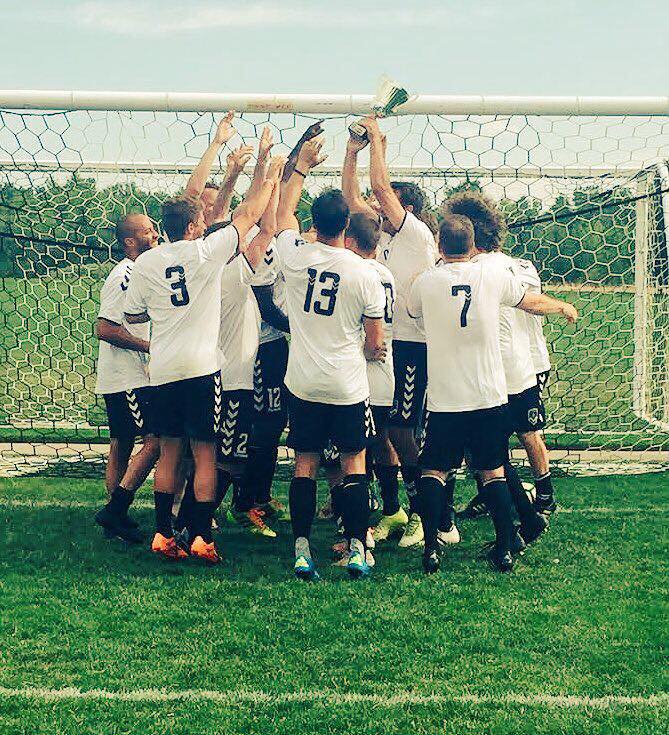
FC Denver celebrates a trophy win. Photo: FC Denver | Facebook
Christos FC isn’t the only amateur club to make a name for itself in the U.S. Open Cup, only the most recent. For its part, FC Denver isn’t setting out to win the tournament — MLS teams have won every edition since 1999. The team has set targets for its first chance to compete in the nation’s oldest tournament.
Fulton said the club’s goal is to be the last amateur team in the tournament, which would net the organization a nice $15,000 prize. Fulton also said just winning a game would be considered a successful first appearance in the U.S. Open Cup.
Regardless of how FC Denver’s first foray into the U.S. Open Cup turns out, the club is part of a growing soccer scene around the country. Across the nation teams are popping up at the semi-pro and amateur level, growing proof of the game’s relevance in a country that still far prefers American football to the world’s football.
FC Denver isn’t unique in its quest to become a premier amateur club. It’s another weave in a pattern of growing grassroots soccer in this country.
“Soccer’s changing,” Fulton said. “A lot of things are happening nationwide with soccer, and locally with a lot more teams playing, generally at a high level. A lot of times guys think about hanging up their boots because they know they’re probably not going to go next level or chase that dream but they love playing.
“So to be able to offer a high level of playing, year-round but in particular at the highest level in the U.S. Open Cup, means so much for us to do and so much for the players to push their competitive energy and really stoke that fire that a lot of guys thought was in the past.”




